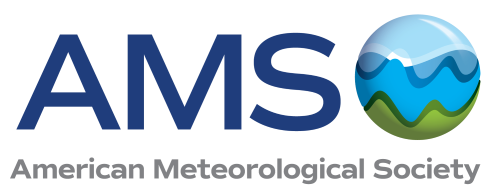MetPy will see you at the AMS 2024 Annual Meeting! We will be hosting two workshops. First, we have the Saturday half-day Short Course for building Exploratory Data Analysis and building your own Python workflows to go from beginning (data and ideas) to end (visualizations!). Second, we have our Sunday Student Conference Python Workshop. Not to spoil too much for that session, but we're looking forward to the week's WxChallenge 😁! Regardless of which session you are participating in, your setup and connection instructions below will remain the same. We're looking forward to seeing you there!
For this workshop, we have two separate ways you can live code, work ahead, and follow along. If you've registered to attend, you will be given access to Unidata's Science Gateway to do your work on NSF's Jetstream Cloud. If you prefer or require doing the work on your own computer, you are welcome to do so as well!
☁️ Using Science Gateway
If you've registered for this workshop, you can do all of this work on our very own gateway to the NSF Jetstream Cloud! After you are given access, you can sign in to Science Gateway with your provided temporary username and password at pyaos-workshop.unidata.ucar.edu.
When you first sign in, it may take a few seconds for your personal workspace to populate and your coding environment to be fully set up. From here you will discover a Jupyter Lab interface pre-populated with these materials and a few tools to enable you to update the materials if needed. Once you are given access, you will be able to download materials and notebooks from your workspace if you'd like, up until a brief time after the end of the workshop.
Note that we at Unidata are not able to plan for any hardware limitations your personal computer might have, and we will not have time during the workshop to diagnose issues on personal computers. Please plan to use Science Gateway if this is a concern for you. We will be using and supporting Conda for installing and managing a Python environment from your computer's command line. Please have this environment prepared ahead of time if you'll be using your own computer.
- Install Miniconda if you don't already have command-line access to
conda.- Get a copy of this code! You have a few options from the green button above,
a.git clone https://github.com/Unidata/metpy-ams-2024.gitfrom your command line, within some directory on your computer. Install git if necessary. If you're comfortable withgit, we recommend this approach as it will let you keep this code regularly up to date.
b.Open with GitHub Desktopif you have and prefer this graphically-focused software.
c.Download ZIPif you prefer to get a single snapshot of the code right here and now.- Wherever you have this code saved, set up your Python environment with
conda env create -f environment.ymlfrom your command line.- Give this some time. Once it's done, activate this new environment with
conda activate metpy-ams-2024. Always do this before starting on work for this workshop!- Launch Jupyter and get to coding with
jupyter lab. Don't forget to activate your environment first!
The JupyterHub for this workshop is part of the U.S. National Science Foundation (NSF) funded Unidata Science Gateway (doi:10.5065/688s-2w73) (under NSF Award 1901712). We thank Andrea Zonca (San Diego Supercomputing Center), Jeremy Fischer (Indiana University), the NSF funded Jetstream team, and the NSF funded XSEDE Extended Collaborative Support Service (ECSS) program for assistance with this JupyterHub.


